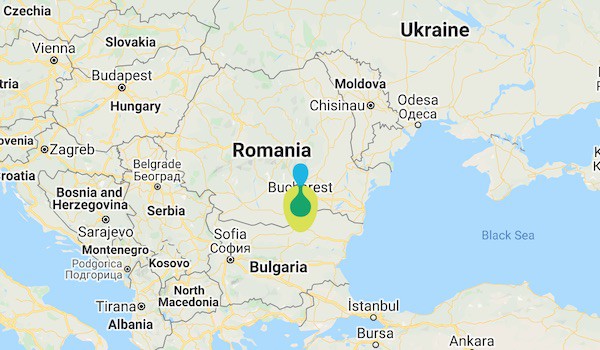The World Health Organization (WHO) declared the week of 1-7 August as the “World Week of Breastfeeding” – respected in over 170 countries to encourage mothers to offer this wonderful gift to their babies and to emphasise the importance of the „Innocenti“ statement, signed in August 1990 by the WHO, UNICEF and the Public Health Institutions in these countries.
And because I am both a nutritionist specialised in pediatric nutrition and the mother of two boys that I breastfeed for about 7 months, I recommend to any fresh mum to breastfeed her newborn as breastfeeding has benefits both for the baby and for the mother.
1. Breastfeeding benefits for the baby:
Breastfeeding reduces the risk of obesity in the babies born by mothers who gained too much weight during pregnancies by correcting their innate insulin and leptin resistance (1)
Please mind that breastfeeding ability to counteract the tendency to fatten in a child with a mother who has taken too much weight during pregnancy only appears if breastfeeding is “on demand”.
Fixed feeding hours regulate only the appetite hormone (ghrelin), not leptin (hormone that regulate hunger and satiety). To understand in detail the importance of on-demand feeding you can read the article “How to feed the newborn of an overweight mother”.
By regulating leptin and insulin secretion, breastfeeding on demand:
– increases immunity (2)
– reduces the risk of asthma (3)
– reduces the risk of diabetes (4)
– reduces the risk of de cardiovascular disease (5)
– and it contributes to a lower cancer risk (6)
2. Breastfeeding benefits for the mother:
– increases her resistance to fatigue (7)
– reduces the risk of postnatal depression (8)
– improves the emotional bond with her child (9)
However, because I was there twice until now, let’s not forget that at first it seems completely unbelievable that most babies don’t really know the “instructions for how to use the breast”, that sometimes the breast ducts get clogged, that most often than not you can actually gain more weight during breastfeeding than during pregnancy and that sometimes all this experience might hurt. Still, in order to actually get to the above mentioned benefits, the mother’s perseverance is extremely important.
So, dear mummy, be brave and do not let the hardships of the breastfeeding’s to prevent you from success. You were able to give birth to this little miracle you’re holding in your arms now, you will also succeed to breastfeed if you stick to it!
Quoted studies
(1) Savino, Francesco et al. “Can hormones contained in mothers’ milk account for the beneficial effect of breast‐feeding on obesity in children?.” Clinical endocrinology 71.6 (2009): 757-765.
(2) Labbok, Miriam H., David Clark, and Armond S. Goldman. “Breastfeeding: maintaining an irreplaceable immunological resource.” Nature Reviews Immunology 4.7 (2004): 565-572.
(3) Kull, Inger et al. “Breast-feeding reduces the risk of asthma during the first 4 years of life.” Journal of Allergy and Clinical Immunology 114.4 (2004): 755-760.
(4) Owen, Christopher G. et al. “Does breastfeeding influence risk of type 2 diabetes in later life? A quantitative analysis of published evidence.” The American journal of clinical nutrition 84.5 (2006): 1043-1054.
(5) Ravelli, A.C.J. et al. “Infant feeding and adult glucose tolerance, lipid profile, blood pressure, and obesity.” Archives of disease in childhood 82.3 (2000): 248-252.
(6) Kwan, Marilyn L. et al. “Breastfeeding and the risk of childhood leukemia: a meta-analysis.” Public health reports 119.6 (2004): 521.
(7) Kendall-Tackett, Kathleen, Zhen Cong, and Thomas W. Hale. “The effect of feeding method on sleep duration, maternal well-being, and postpartum depression.” Clinical Lactation 2.2 (2011): 22-26.
(8) Kendall-Tackett, Kathleen. “A new paradigm for depression in new mothers: the central role of inflammation and how breastfeeding and anti-inflammatory treatments protect maternal mental health.” International Breastfeeding Journal 2.6 (2007): 1746-4358.
(9) Olza-Fernández, Ibone et al. “Neuroendocrinology of childbirth and mother-child attachment: the basis of an etiopathogenic model of perinatal neurobiological disorders.” Frontiers in neuroendocrinology (2014).


